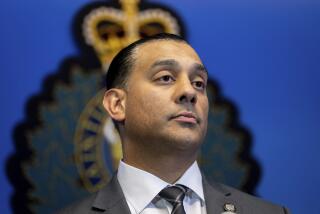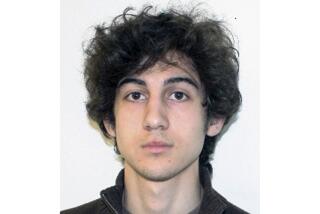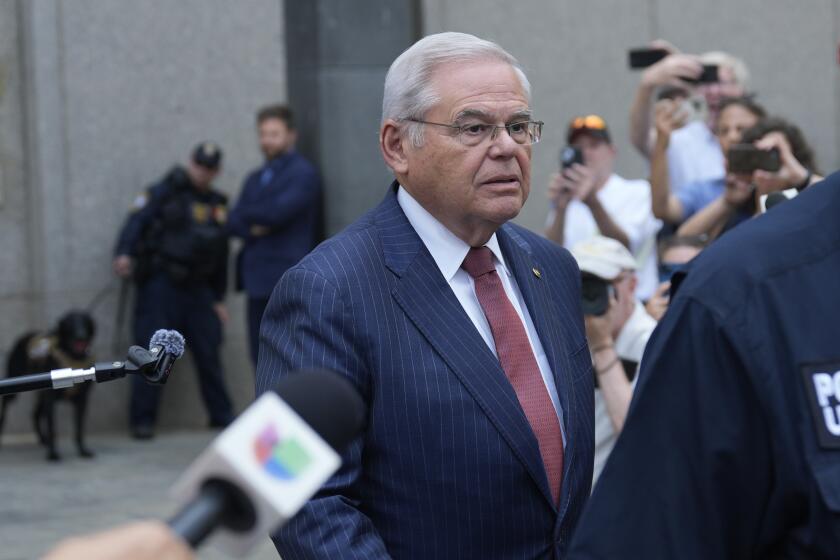Mumbai’s high court upholds death penalty against gunman
Mumbai’s high court on Monday reaffirmed the death penalty against the lone surviving gunman in the 2008 terrorist attack in which 166 people were killed and India’s financial center came to a standstill for nearly three days.
Pakistani national Ajmal Amir Kasab, 24, can appeal to India’s Supreme Court within 30 days. India’s preferred method of execution is hanging.
In its 1,208-page order, the Bombay High Court said Kasab’s actions in Mumbai, formerly known as Bombay, exhibited “extreme perversity and brutality,” making this a rare case in which life imprisonment was inadequate. “Kasab killed innocent people mercilessly,” the judges wrote.
After the announcement, some residents of the city set off fireworks and chanted that Kasab should die.
The court, citing insufficient evidence, also upheld the acquittal of two Indian citizens, Faheem Ansari and Sabauddin Ahmed. The case was based largely on the testimony of a single witness.
Kasab was the only one of 10 attackers captured alive after the November 2008 attack. Last May, a special antiterrorism court sentenced him to death on five counts, including criminal conspiracy and waging war against the nation.
Kasab was not in court Monday but appeared briefly on a video link with his head down. He was bearded and wore a white kurta, a traditional loose shirt.
Outside the courthouse, special prosecutor Ujjwal Nikam engaged in a bit of grandstanding after the death sentence was reaffirmed. “You changed colors, you changed masks,” he said in rhyming Hindi couplets. “But in the end I brought you to the gallows.”
According to Nikam, Kasab has never shown remorse and even said at one point that he was sorry he’d arrived late at Mumbai’s main railway station, because there were fewer people to kill.
Defense attorney Amin Solkar argued that Kasab was mentally unstable and not part of the broader conspiracy to attack two luxury hotels and the Nariman House Jewish center.
Representing Kasab has been a challenge, Solkar told local media Monday. Though legal interviews with Kasab would start out calm and polite, he said, Kasab would later begin acting wild and walking off. Solkar said Kasab’s extended solitary confinement might partly explain the behavior.
Analysts said the case against Kasab was straightforward, given DNA evidence, closed-circuit video and witness testimony.
Prosecutors have moved ahead deliberatively, analysts said, in part to send Pakistan a message that India’s legal system is fair and to bolster its case that Pakistan is a training ground for those perpetrating cross-border attacks.
The nuclear-armed neighbors have fought three wars since independence in 1947.
“If it was just a matter of hanging [Kasab], it could’ve been done earlier,” said Sushant Sareen, an analyst with New Delhi’s Institute for Defense Studies and Analyses.
But the acquittal of the two Indian suspects is more problematic, Sareen said. Although there’s probably reasonably strong evidence against the pair, he said, the way police collect evidence in India, the state of forensics, the way cases are presented and India’s antiquated laws make it difficult to win convictions in such cases.
“We’re dealing with 21st century crimes with 18th century laws,” Sareen said.
India and Pakistan agreed this month to resume talks, on a host of issues, that were suspended after the Mumbai attack.
More to Read
Sign up for Essential California
The most important California stories and recommendations in your inbox every morning.
You may occasionally receive promotional content from the Los Angeles Times.






